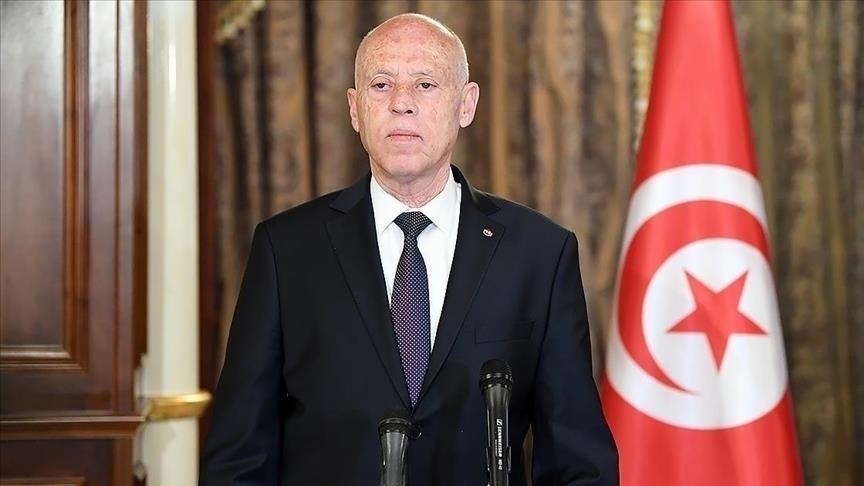On February 21, 2023, Tunisia’s President Kais Saied told a meeting of his country’s National Security Council that “urgent measures” must be implemented to stop sub-Saharan African immigrants from changing the North-African nation’s demographic makeup.
Saied said the “hordes of illegal immigrants from sub-Saharan Africa “bring violence, crime and unacceptable practices as part of a criminal plot with the undeclared goal of turning Tunisia (into) a purely African country that has no affiliation to the Arab and Islamic nations.”
Expectedly, the statement sparked outrage, with many accusing him of racism and hate speech.
“It is a racist approach, just like the campaigns in Europe,” said Ramadan Ben Amor, spokesman for the Tunisian Forum for Economic and Social Rights (FTDES). “The presidential campaign aims to create an imaginary enemy for Tunisians to distract them from their basic problems.”
Denouncing Saied’s anti-migrant campaign, the African Union (AU) cancelled a conference scheduled to hold in Tunisia this month. The World Bank also suspended talks about future projects in Tunisia.
The US State Department spokesman, Ned Price, said his country was “deeply concerned” as Saied’s comments “are not in keeping with Tunisia’s long history of generosity and hosting and protecting refugees, asylum seekers and migrants, and we’re disturbed by reports of violence against these very migrants.”
Stung by international censure, the Tunisian government switched to damage control mode, with Foreign Minister Nabil Ammar calling allegations of official racism “unjust and unacceptable.”
Insisting that it was “an honour for Tunisia to be an African state,” the government added that “Tunisia will remain a state that will struggle for the oppressed and prevail for the victims of any kind of racial discrimination.” It then announced measures to assist foreigners living in Tunisia, including the provision of medical and psychological support for migrants.
We strongly condemn Saied’s comments and believe it should not have been made at all. His comments feed into and reinforce a racist frenzy in Tunisia, where social media campaigns have recently urged Tunisian authorities to stop African migrants from travelling through Tunisia on their way to Europe or settling in the country, as thousands have done.
Tunisia is a country with a population of about 12.5m people, out of which between 10% and 15% are blacks, even though no official figures of the black population exist. Also, due to systemic racism, there is a relative lack of black Tunisians in politics or the media. And according to a 2018 Afrobarometer survey, black Tunisians reported a variety of disadvantages, the most important of which was unemployment, at about 42%, compared with 25% nationally.
Unfortunately, as the Human Rights Watch has noted, Saied’s statement has become an official endorsement of racism as it has inflamed passion and emboldened obscure racists to act openly. His comments also run counter to the law passed on October 9, 2018, by Tunisia’s parliament, titled the “Elimination of All Forms of Racial Discrimination” Act. The law, which defines and criminalizes racial discrimination, came to defend the rights of Tunisians who identify as black, as well as the country’s 60,000 sub-Saharan African immigrants.
What is clear is that as discrimination against blacks is rooted in Tunisian history, the country should do well by addressing it, including by integrating its black populations, especially as the country’s rights groups have said the authorities have not done enough to address domestic racism. Going forward, there is a need for sub-Saharan African nations to stop their citizens from using Tunisia or any other country as a transit point for migrants and refugees seeking to cross the Mediterranean to Europe. And instead of elevating discrimination against black immigrants as a national policy, the Tunisian authorities should work with sub-Saharan African countries in cracking down and stopping the flow of immigrants to the country.
More so, President Saied should face the domestic issues of his country instead of seeking a scapegoat, this time black Africans. He should ensure his country is not used for the promotion of anti-African policies and pronouncements and work for the African brotherhood. They should show this by stopping all attacks, arrests and discrimination against Africans in their country, as this has spiralled into vigilante violence against Black people.
Important in this respect is the need for sub-Saharan Africans to realize that, in reality, nowhere is better than home. The uncontrolled craze for migration out of Africa has brought more harm and has come with disrespectful, discriminatory and derogatory statements and treatments such as Saied’s. And with the rising racism, countries such as the Ivory Coast, Mali and Guinea have begun airlifting their citizens out of Tunisia. The Nigerian government is considering the evacuation of its own. Toward this end, the International Organization for Migration (IOM), a United Nations agency, should assist immigrants desirous of being airlifted back to their countries.
Nigeria, as the largest black nation, should protest President Saied’s racist comment by repudiating the Memoranda of Understanding (MoU) on energy, trade, cultural cooperation, youth development, social affairs and consumer protection to boost and strengthen bilateral relations signed on March 14, 2018, with Tunisia.
Daily Trust demands that President Saied personally retract his shocking and unfortunate comments. He and other leaders must learn to accord Africans the respect and dignity they deserve.
